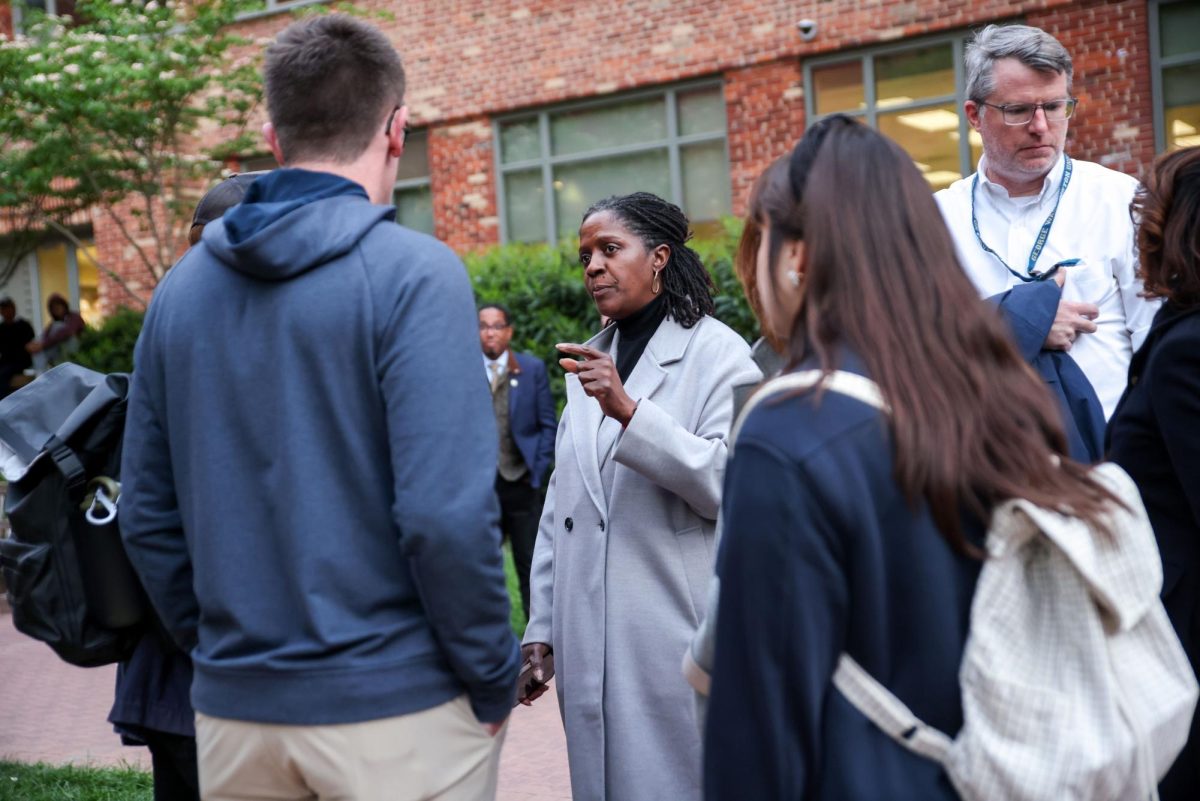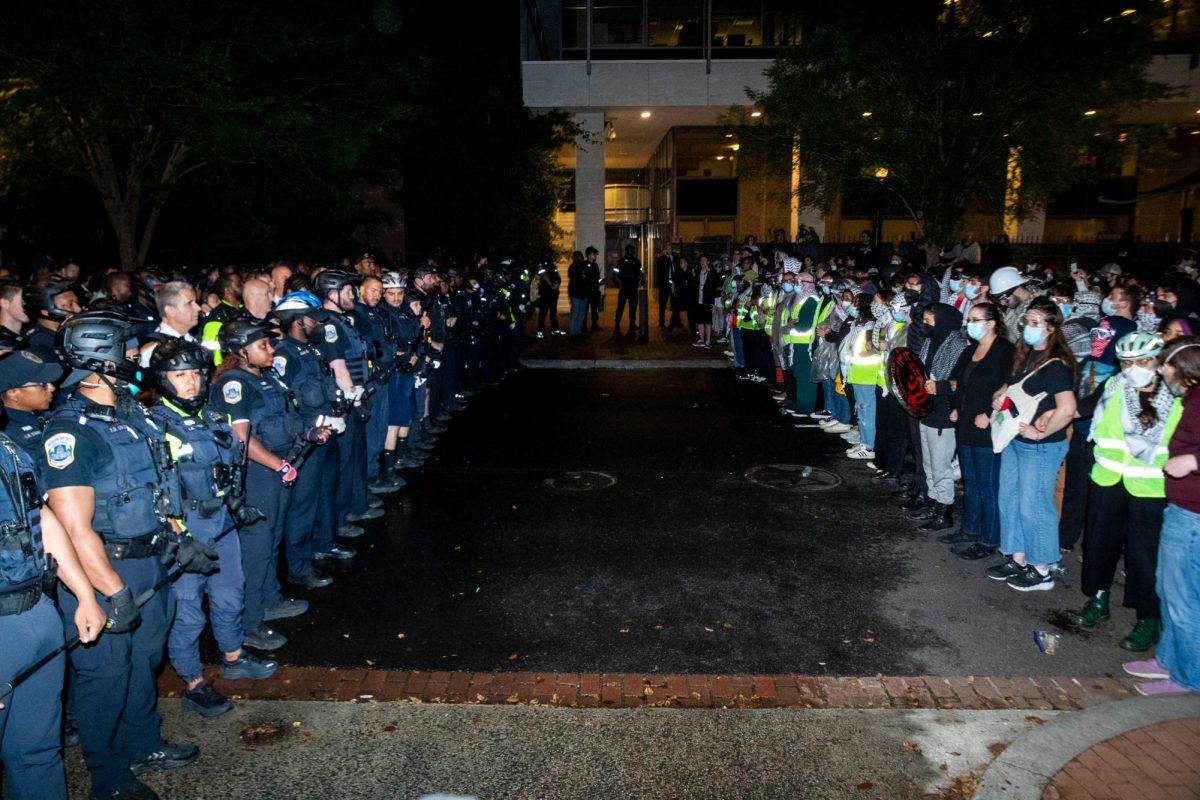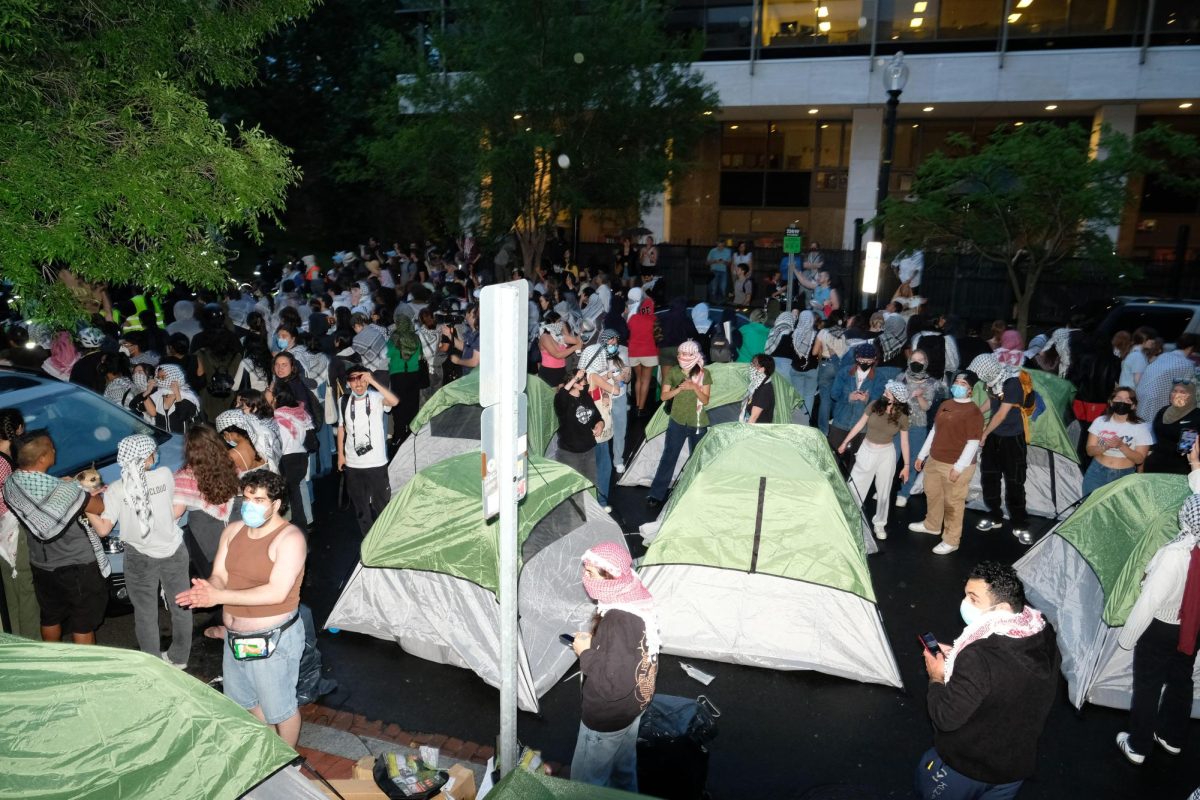The Student Association Senate aligned with United Students Against Sweatshops and Students for Sensible Drug Policy Tuesday night, passing resolutions urging GW to do more to ensure its apparel is manufactured without sweatshop labor and proposing an overhaul of the University’s no-tolerance eviction policy for drug offenses.
The Senate unanimously passed the resolution advocating GW’s membership in the Workers’ Rights Consortium, an international watchdog group that investigates working conditions in factories. USAS members brought the resolution to the floor with a petition of 2,000 student signatures, 1,900 more than required to force a vote in the Senate.
The resolution to change eviction policies, supported and co-written by Sen. Matt Silverstein (U-at large) and SSDP members Brian Gralnick and Sam McCree, proposes that GW replace its no-tolerance policy with a student and faculty eviction review board, which would deal with each case individually. The board would only remove a student if “it is in the best interest of the student, the residents of the community and (GW) as a whole,” according to the resolution. The current drug policy terminates a student’s lease if GW finds any amount of illegal substance in a residence hall.
McCree, president of the GW’s SSDP chapter, said University President Stephen Joel Trachtenberg told students he would approve the new system if the SA passed it.
GW could be one of the first universities in the country to amend its no-tolerance drug policy, McCree said.
“We’re finally seeing a lot of people stepping away from the (no-tolerance) policy,” he said.
Members of USAS were among 60 students and faculty members who protested outside Rice Hall last week, demanding that Trachtenberg ensure GW’s clothes are not made in sweatshops by joining the WRC. Students later met with Trachtenberg and handed him a petition signed by thousands of students in support of GW’s membership in the consortium. Trachtenberg told students GW would disclose the location of factories where GW apparel is made, but also said Follet Bookstore’s codes of conduct safeguard against sweatshop labor.
In a letter written earlier this year responding to concerns over sweatshop labor, Trachtenberg told students to direct their petitions to the SA, which could vote to pay for the University’s $1,000 membership in the WRC.
The resolution passed Tuesday does not appropriate any funds for the consortium or make any mention of using SA funds to join the group.
“The Student Association has funds,” Trachtenberg said. “If they want to join the WRC, let them join the WRC. What I want to know, is why someone who has the capacity to do something doesn’t do it themselves?”
Sen. Mike Pellegrino (U-ESIA), who worked with USAS to bring the resolution to the SA, said the SA is not responsible for signing GW up for the WRC because the student group has no contract with the company that makes GW’s clothing.
“The only power the SA has is to advocate,” he said. “It seems to me it’s not the SA’s job.”
Despite Trachtenberg’s proposition, Pellegrino said the SA cannot join the WRC on the University’s behalf.
“Only the University can sign on to this thing,” Pellegrino said. “If the SA could, we absolutely would.”
Trachtenberg said students and University officials need to learn more about the group before they join.
“Before anybody asks the University to join an organization, they ought to know about them,” he said. “For all I know, they’re an arm of the Mafia.(or) descendants of Mother Theresa.”
The Senate rejected a resolution Tuesday encouraging the University to create a loan program for students affected by the 1998 financial aid amendments of the Higher Education Act, which denies federal money to any person convicted of a drug charge. The resolution was also endorsed and co-written by Silverstein, Gralnick and McCree.
The resolution met with opposition by senators who said they view financial aid as a privilege, not a right.
“A lot of people in the Senate thought that it would be giving money to people who use drugs,” Silverstein said.
SSDP led a campaign against the Higher Education Act amendments this year, arguing the law is discriminatory, affecting mainly students from inner cities and students of lower-economic classes who need financial aid. The amendments do not penalize students who have been convicted of any crime besides drug-related ones.







